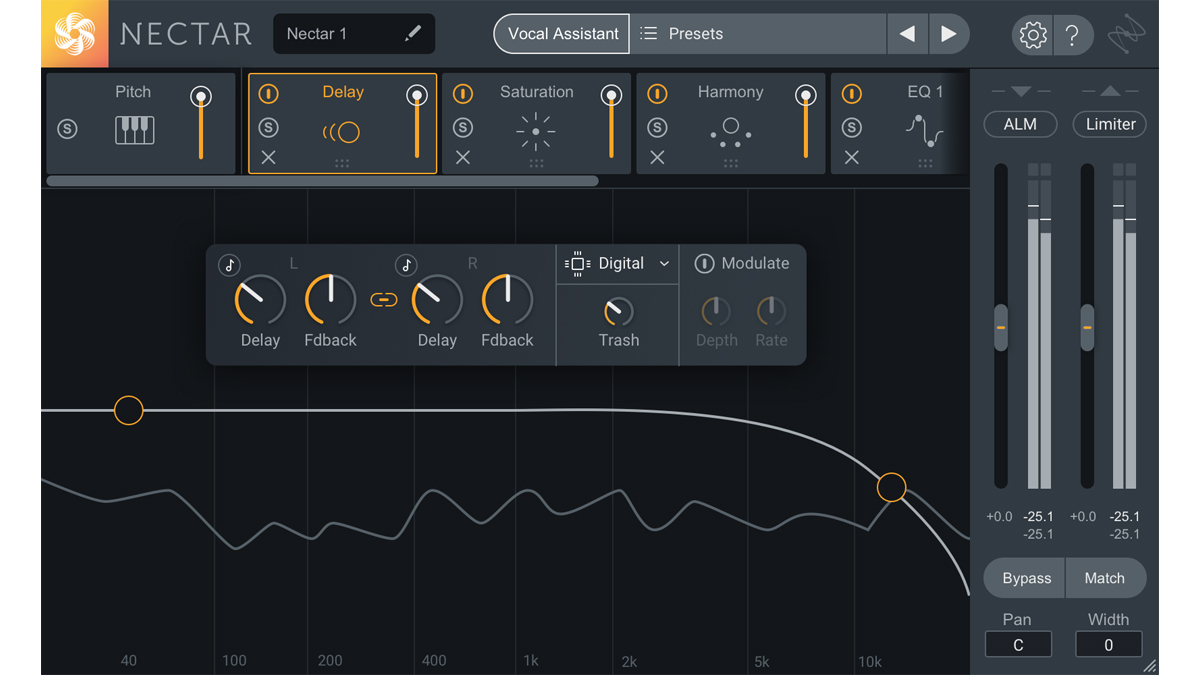iZotope's Nectar 3 plugin comes with a smart assistant that'll fix-up your vocals so you don't have to
New modules and features for the vocal processing powerhouse

iZotope’s Nectar vocal processing plugin was already pretty comprehensive, so you’re entitled to wonder what the company could possibly do to improve it. The answer comes in the form of Nectar 3, which delivers a redesigned interface, five new modules and more.
Perhaps the biggest addition is the Vocal Assistant, which offers one-click custom preset creation based on machine learning technology that will help you to make a vocal fit your mix in a matter of seconds. There’s also Vocal Assistant: Unmask, which removes mix elements that are competing with the vocal so that it’s pushed to the forefront.
The Dynamic EQ, meanwhile, comes with a new Follow EQ mode, which automatically “sculpts and shapes” your vocal in real-time. Auto Level Mode is designed to smooth out your vocal’s overall level.
Nectar 3 also boasts Inter-plugin Communication, which means that it can work in tandem with other iZotope plugins to resolve a range of mix issues. It ships with a variety of extras, too: the Component RX 7 Breath Control plugin, Celemony Melodyne 4 Essential, iZotope Relay and a large collection of presets.
As well as these new features, Nectar 3 also offers performance improvements for the other modules.
Nectar 3 will be available on its own priced at $199 (regular price is $249), or as part of iZotope’s new Music Production Suite 2 or all-new Vocal Chain bundles. These will be available for the introductory prices of $599 and $399 respectively, rising to $999 and $499. All of these products will ship in November, though customers who purchase Nectar 2 Production Suite or Music Production Suite now will receive a free upgrade to Nectar 3 or Music Production Suite 2 when they’re released.
Find out more on the iZotope website.
Get the MusicRadar Newsletter
Want all the hottest music and gear news, reviews, deals, features and more, direct to your inbox? Sign up here.

I’m the Deputy Editor of MusicRadar, having worked on the site since its launch in 2007. I previously spent eight years working on our sister magazine, Computer Music. I’ve been playing the piano, gigging in bands and failing to finish tracks at home for more than 30 years, 24 of which I’ve also spent writing about music and the ever-changing technology used to make it.
“The included sample content is not only unique but sonically amazing, as it always was”: Spitfire Audio BBC Radiophonic Workshop review
“We were able to fire up a bass sound that was indistinguishable from the flavour of New Order’s Blue Monday in seconds”: EastWest Sounds Iconic review









